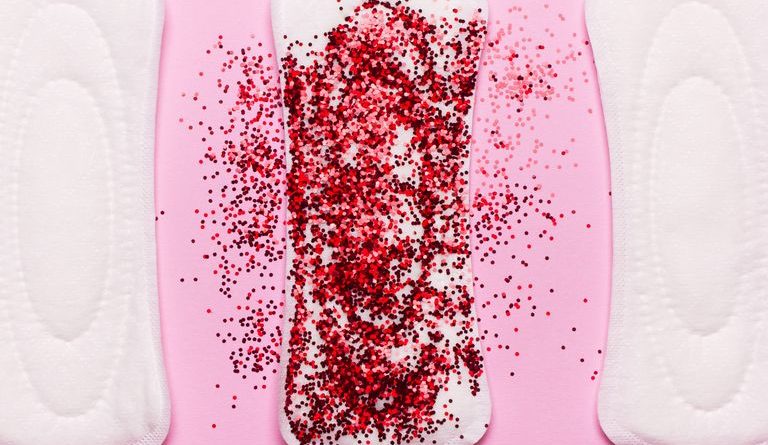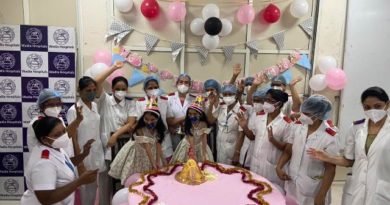Menstruation – A Taboo
by Dr. Jayashree Reddy, Infertility Specialist, Gynaecologist and Laparoscopic Surgeon (Gynaecology and Obstetrics), Apollo Cradle & Children’s Hospital, Hyderabad
A woman’s menstrual health is crucial to her well-being and also to the well-being of her family and community. But too often — especially in the developing world — mindsets, customs and institutional biases prevent women from getting the menstrual health care they need. Menstrual hygiene continues to be amongst the most challenging development issues today.
Menstruation is still considered a taboo in the Indian society. Even today, the cultural and social influences on people create a major hurdle in ensuring that the adolescent girls are given proper knowledge on menstrual hygiene. Mothers are also reluctant to talk about this topic with their daughters and many of them lack scientific knowledge on puberty and menstruation.
Lack of Education & Awareness
There are over 355 million menstruating women and girls in India, but millions of women across the country still face significant barriers to a comfortable and dignified experience with menstrual hygiene management (MHM). A study found that 71% of girls in India report having no knowledge of menstruation before their first period.
“I was very scared. I wondered what was happening to me [when I first got my period]. I was not injured, but I was really worried. I came to home [from school] as fast as I could. But I was also scared to tell my mother about it. She would ask me how it happened.” – Pinky, 13-year-old girl in rural Kanpur, Uttar Pradesh.
The majority of girls in India lack of awareness about menstruation before menarche have experiences similar to Pinky. Their first experience of menstruation is often associated with shame, fear, and agony. Several regional studies have also indicated that menstruating girls are not aware of the biological reasons associated with menstruation, and in fact perceived menstruation to be a “disease.”
Hence it is imperative to make them understand that menstruation is a natural phenomenon and create proper awareness. Here are the few important questions that are answered….
When Do Most Girls Get Their Period?
Most girls get their first period when they’re around 12. But getting it any time between age 10 and 15 is OK. Every girl’s body has its own schedule. There isn’t one right age for a girl to get her period. But there are some clues that it will start soon:
• Most of the time, a girl gets her period about 2 years after her breasts start to develop.
• Another sign is vaginal discharge fluid (sort of like mucus) that a girl might see or feel on her underwear. This discharge usually begins about 6 months to a year before a girl gets her first period.
What Causes a Period?
A period happens because of changes in hormones in the body. Hormones are chemical messengers. The ovaries release the female hormones estrogen and progesterone. These hormones cause the lining of the uterus (or womb) to build up. The built-up lining is ready for a fertilized egg to attach to and start developing. If there is no fertilized egg, the lining breaks down and bleeds. Then the same process happens all over again. It usually takes about a month for the lining to build up and then break down. That is why most girls and women get their periods around once a month.
How Does Ovulation Relate to Periods?
Ovulation (pronounced: ov-yoo-LAY-shun) is the release of an egg from the ovaries. The same hormones that cause the uterus lining to build up also cause an egg to leave one of the ovaries. The egg travels through a thin tube called a fallopian tube to the uterus. If the egg is fertilized by a sperm cell, it attaches to the wall of the uterus, where over time it develops into a baby. If the egg is not fertilized, the uterus lining breaks down and bleeds, causing a period.
Do Periods Happen Regularly When Menstruation Starts?
For the first few years after a girl starts her period, it may not come regularly. This is normal at first. By about 2–3 years after her first period, a girl’s periods should be coming around once every 4–5 weeks.
Can a Girl Get Pregnant as Soon as Her Period Starts?
Yes, a girl can get pregnant as soon as her period starts. A girl can even get pregnant right before her very first period. This is because a girl’s hormones might already be active. The hormones may have led to ovulation and the building of the uterine wall. If a girl has sex, she can get pregnant, even though she has never had a period.
How Long Do Periods Last?
Periods usually last about 5 days. But a period can be shorter or last longer.
How Often Does a Period Happen?
Periods usually happen about once every 4–5 weeks. But some girls get their periods a little less or more often.
Should I Use a Pad, Tampon, or Menstrual Cup?
You have many choices about how to deal with period blood. You may need to experiment a bit to find which works best for you. Some girls use only one method and others switch between different methods.
• Most girls use pads when they first get their period. Pads are made of cotton and come in lots of different sizes and shapes. They have sticky strips that attach to the underwear.
• Many girls find tampons more convenient than pads, especially when playing sports or swimming. A tampon is a cotton plug that a girl puts into her vagina. Most tampons come with an applicator that guides the tampon into place. The tampon absorbs the blood. Don’t leave a tampon in for more than 8 hours because this can increase your risk of a serious infection called toxic shock syndrome.
• Some girls prefer a menstrual cup. Most menstrual cups are made of silicone. To use a menstrual cup, a girl inserts it into her vagina. It holds the blood until she empties it.
How Much Blood Comes Out?
It may look like a lot of blood, but a girl usually only loses a few tablespoons of blood during the whole period. Most girls need to change their pad, tampon, or menstrual cup about 3‒6 times a day.
Will I Have Periods for the Rest of My Life?
When women reach menopause (around age 45‒55), their periods will permanently stop. Women also won’t have a period while they are pregnant.
What Is PMS?
PMS (premenstrual syndrome) is when a girl has emotional and physical symptoms that happen before or during her period. These symptoms can include moodiness, sadness, anxiety, bloating, and acne. The symptoms go away after the first few days of a period.
What Can I Do About Cramps?
Many girls have cramps with their period, especially in the first few days. If cramps bother you, you can try:
• a warm heating pad on your belly
• can use medications suggested by doctor
Should I Watch for Any Problems?
Most girls don’t have any problems with their periods. But call your doctor if you:
• are 15 and haven’t started your period
• have had your period for more than 2 years and it still doesn’t come regularly (about every 4–5 weeks)
• have bleeding between periods
• have severe cramps that don’t get better with medication
• have very heavy bleeding (bleeding that goes through a pad or tampon faster than every 1 hour)
• have periods that last more than about a week
• have severe PMS that gets in the way of your everyday activities
Looking Ahead
Periods are a natural, healthy part of a girl’s life. They shouldn’t get in the way of exercising, having fun, and enjoying life. If you have questions about periods, ask your doctor, a parent, health teacher, school nurse, or older sister.




